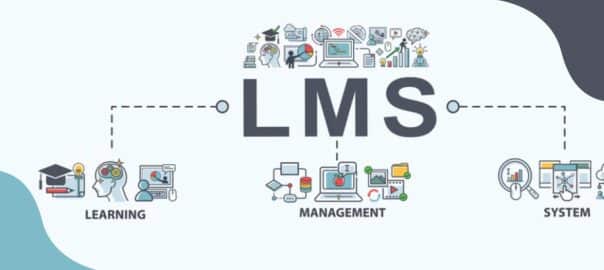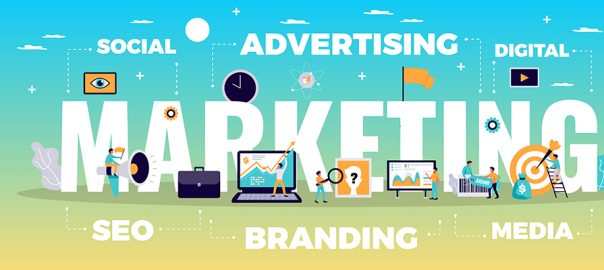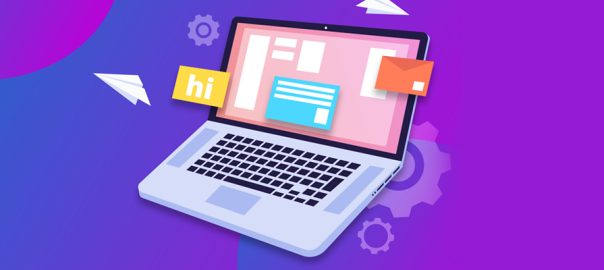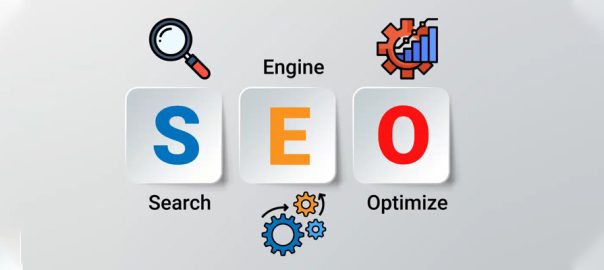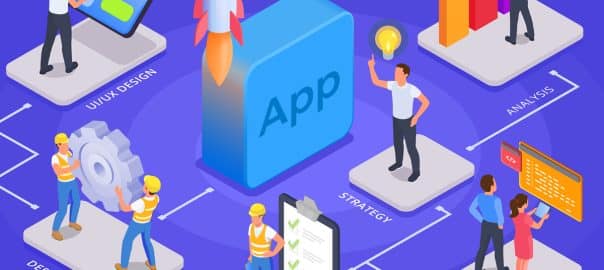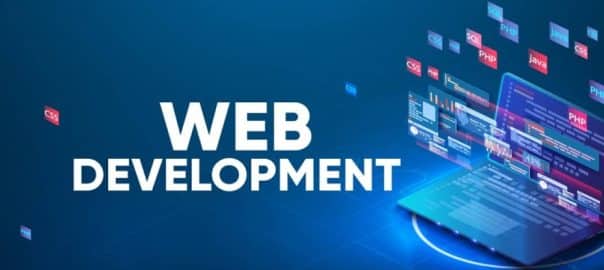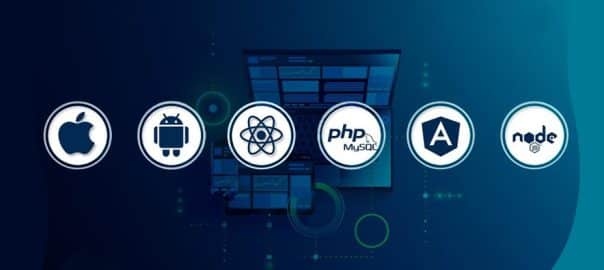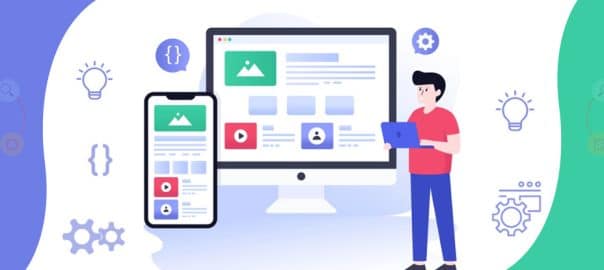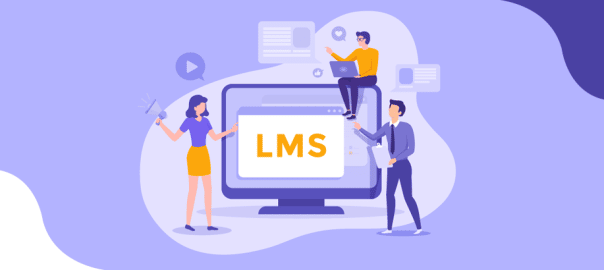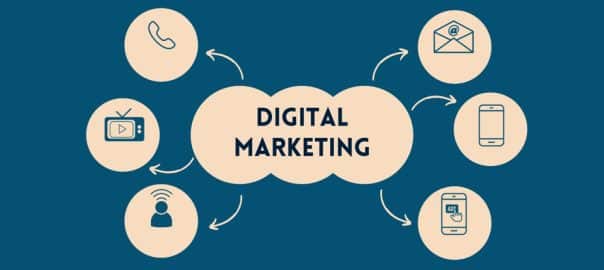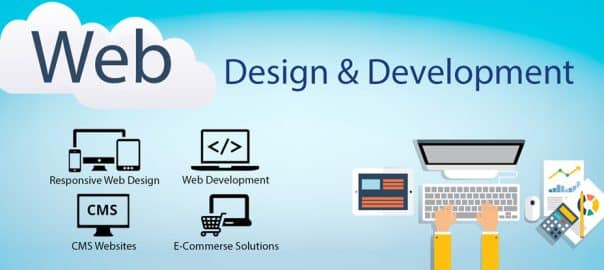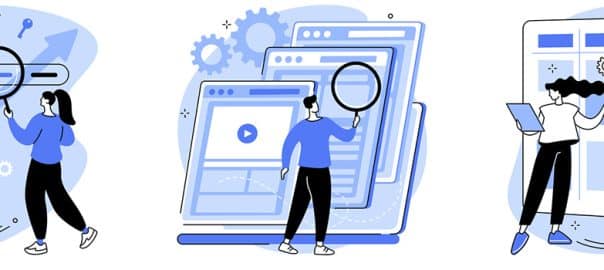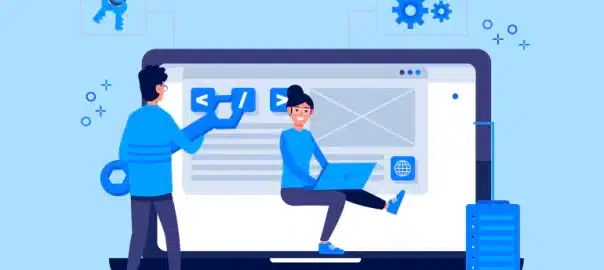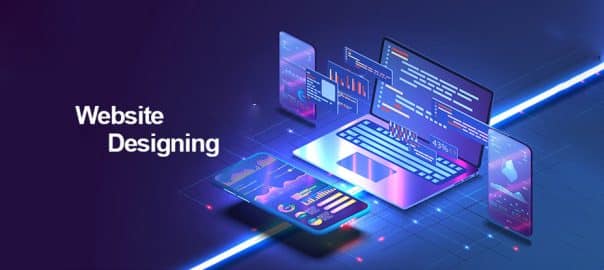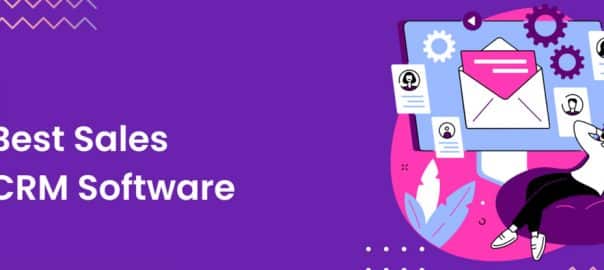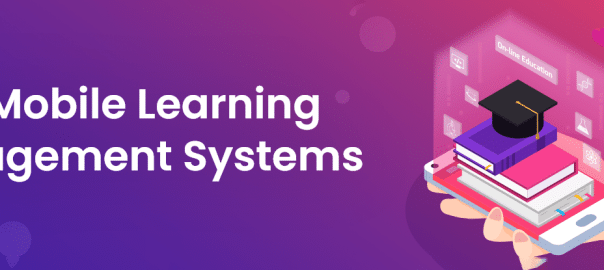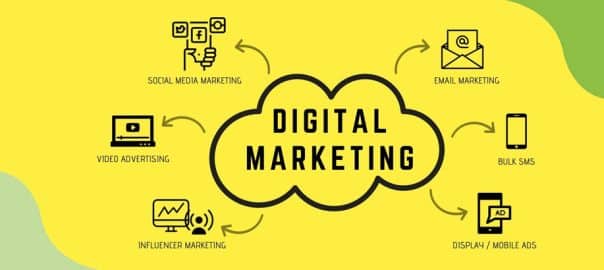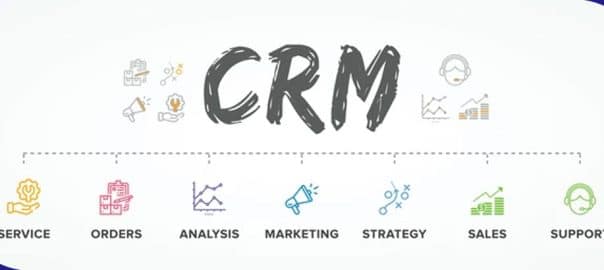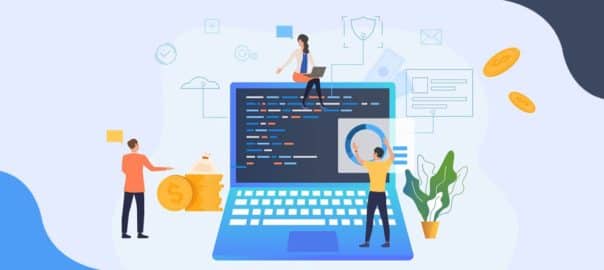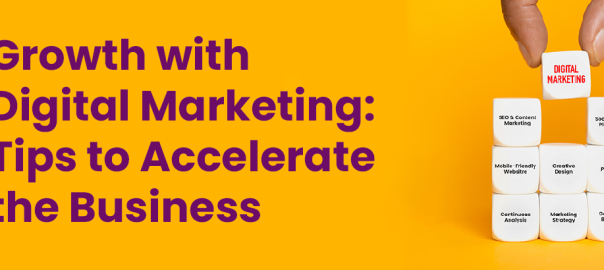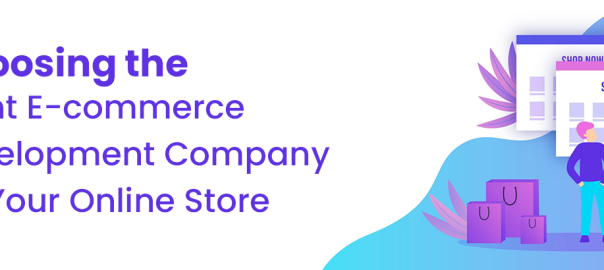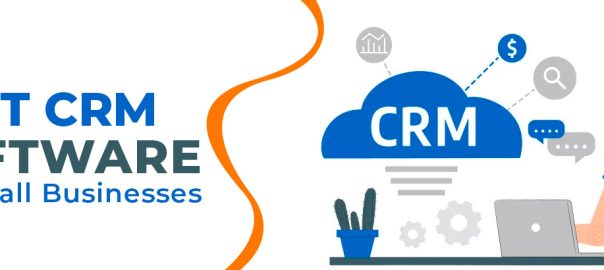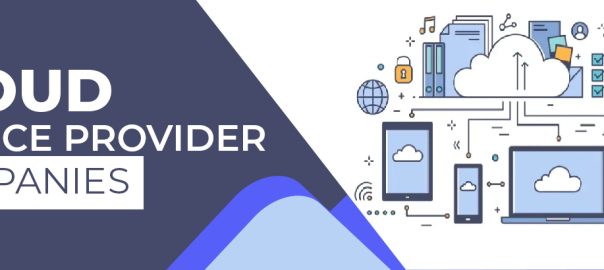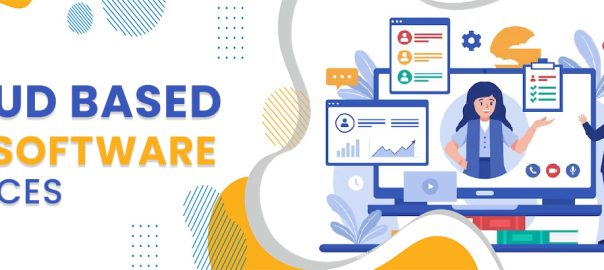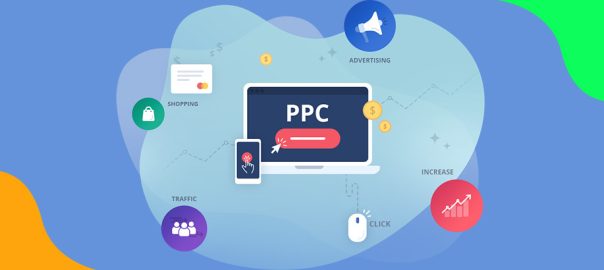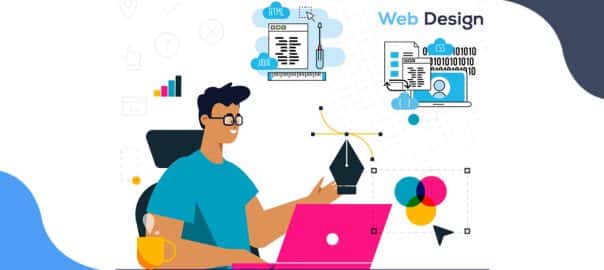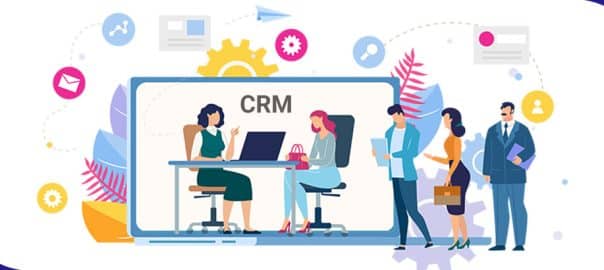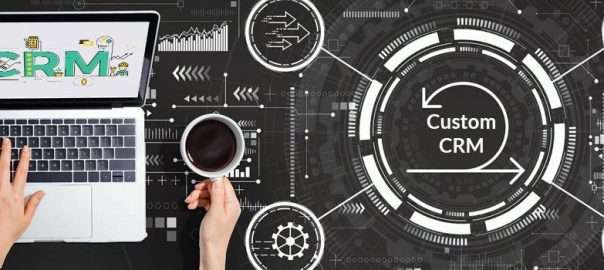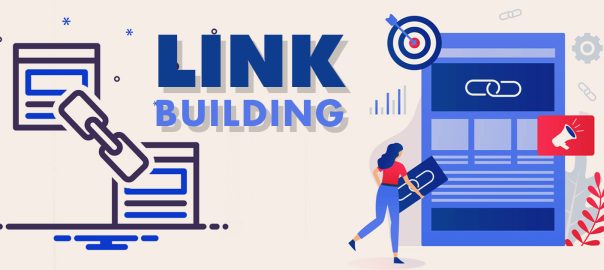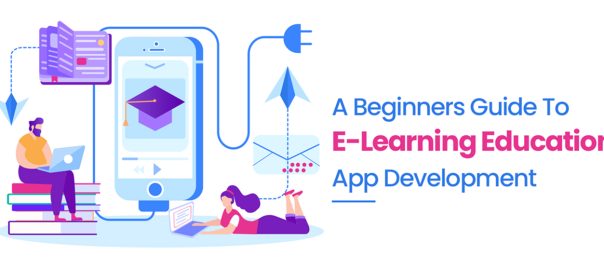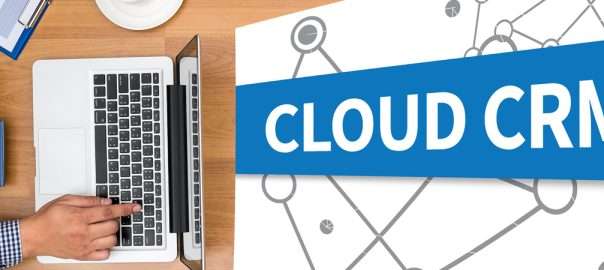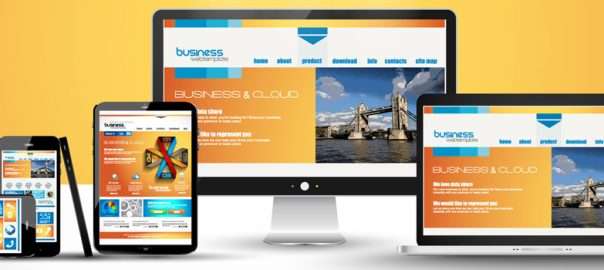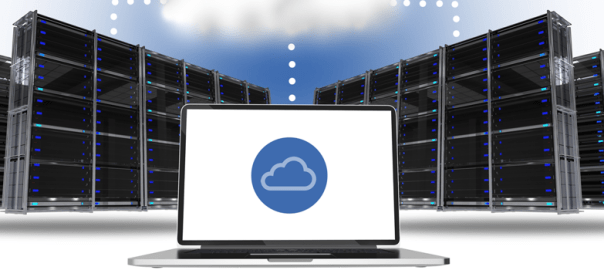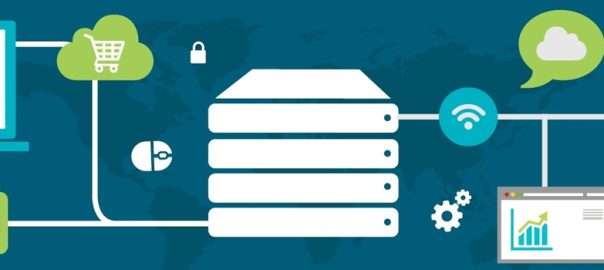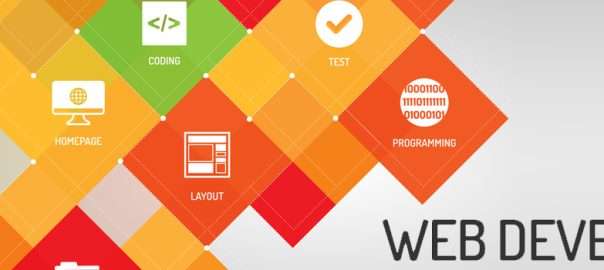Why Every Brand Needs an Online Marketing Company in 2024!
Have you ever noticed how some brands are everywhere?
You might have a great product, but no one knows about it. An online marketing company can help. They tell your brand’s story and help you stand out. Using smart strategies and tools, they make your brand well-known.
They create eye-catching ads and engaging social media posts to attract attention to your business. With their support, your online presence can grow significantly.
In this blog post, we’ll dive into how these companies work their magic, boost your brand, and turn your business goals into reality.
What is an Online Marketing Company?
An online marketing company helps businesses promote their products or services on the Internet. They use various strategies like social media, search engine optimization (SEO), email campaigns, and online ads to reach and attract customers.
Their goal is to boost a company’s online presence, drive more traffic to their website, and increase sales. Essentially, they handle all aspects of digital marketing to help businesses grow online.
What services do Online Marketing Companies offer?
Online marketing companies offer a range of services to help businesses thrive online. These typically include:
Search Engine Optimization (SEO): Making a website easier to find in search engine results.
Social Media Marketing: Creating and sharing content on social media.
Content Marketing: Making and sharing useful content to attract and engage customers.
Email Marketing: Create and send email campaigns to engage leads and keep customers.
Pay-Per-Click (PPC) Advertising: Running ads on search engines and other platforms to drive traffic.
Web Design and Development: Create and improve websites to make them easier for users.
Analytics and Reporting: Tracking and analyzing marketing performance to inform strategies.
Can an Online Marketing Company help with brand building?
An online marketing company can help with brand building by creating a strong online presence, producing valuable content, and engaging with your audience on social media. They manage your brand’s reputation, run targeted advertising campaigns, and ensure consistent branding across all platforms.
Through these efforts, they enhance brand visibility, recognition, and loyalty, making your brand more trusted and well-known in your industry.
Can an Online Marketing Company help with both local and global marketing efforts?
An online marketing company can assist with both local and global marketing efforts.
For local marketing, they use strategies like local SEO, Google My Business optimization, and targeted advertising to attract nearby customers. They also focus on local social media engagement and community-based campaigns.
For global marketing, they implement broader strategies such as international SEO, content in multiple languages, and global ad campaigns to reach audiences across different regions. By tailoring their approach to each market, they help businesses expand their reach locally and globally, ensuring they connect with the right audience no matter where they are.
Conclusion
Online marketing company plays a vital role in helping businesses grow by boosting their online presence, engaging with customers, and driving sales. Whether focusing on local or global markets, they offer tailored strategies that build brand recognition and connect businesses with the right audience, ultimately fueling success.
An online marketing company like vStacks Infotech helps businesses improve their digital presence. We use modern strategies and tools to help brands connect with their target audience, which boosts growth and increases returns on investment. Working with vStacks Infotech can turn your online marketing into real success.
Transform Your Business Online: Expert Web Development Service in Noida!
Web development services help bring your online presence to life. Whether you’re starting a new business or revamping an existing site, these services cover everything from designing a user-friendly layout to coding and making sure your site runs smoothly.
Web developers focus on creating websites that are not only visually appealing but also functional and easy to navigate. They use various technologies and tools to ensure your site is fast, secure and meets your needs.
In this blog post, we will explore the services and benefits of choosing web development service in noida.
What is a Web Development Service?
A Web Development Service helps businesses create and maintain their websites. It includes designing the site, writing code, and ensuring it runs smoothly.
These services also involve setting up features like contact forms and online stores, optimizing the site for search engines, and making sure it works well on all devices.
What Types of Websites Can a Web Development Service Create?
A Web Development Service can create various types of websites, including business websites, e-commerce stores, blogs, and portfolios. They also build custom sites for specific needs, like membership sites, educational platforms, and online booking systems.
Whether you need a simple informational site or a complex, interactive platform, these services can tailor the design and functionality to fit your requirements and goals.
Why Should I Choose a Web Development Service for My Business?
Choosing a Web Development Service for your business offers several advantages.
Local Expertise: They understand the regional market and can tailor your website to local customer preferences.
Personalized Service: Expect tailored solutions and direct communication for better alignment with your business goals.
Competitive Pricing: Often offer affordable rates compared to other regions while maintaining high quality.
Skilled Professionals: Access to experts who use the latest technologies and trends.
Quick Turnaround: Faster project completion due to proximity and effective collaboration.
Local Support: Easier to get on-site support and updates, ensuring your site runs smoothly.
How do I Find a Reliable Web Development Service In Noida?
To find a reliable Web Development Service in Noida:
Research Online
- Search Engines: Look for web development companies in Noida.
- Reviews and Ratings: Check platforms like Google Reviews, Yelp, or Clutch for feedback from previous clients.
Check Portfolios
- Previous Work: Review the company’s past projects to assess quality and style.
- Industry Experience: Ensure they have experience in your industry or type of website.
Evaluate Expertise
- Technologies Used: Confirm they use modern and relevant technologies.
- Certifications and Skills: Look for certifications or specialized skills.
Ask for References
- Client Testimonials: Request contact details of past clients for their feedback.
- Case Studies: Review detailed case studies showcasing their problem-solving skills.
Compare Quotes
- Cost Estimates: Obtain quotes from multiple providers for a cost comparison.
- Service Inclusions: Ensure the quote covers all necessary services and support.
Conclusion
Web development services are essential for creating a strong online presence. They help businesses design user-friendly websites that attract and engage visitors. By leveraging the latest technologies and design trends, web development services ensure your website is both functional and visually appealing.
If you are looking for a web development service in Noida then look no further than vStacks Infotech. Our skilled developers build attractive and easy-to-use websites. Whether you need an e-commerce site, a corporate page, or a personal blog, we make sure your site works well on all devices.
The Ultimate Guide to Choosing the Best Web Application Development Company!
Web application development is all about creating software that runs on the internet and is accessible through a web browser. It involves designing and building applications that can perform various tasks, from managing data to providing interactive features.
Whether it’s a social media platform, an online store, or a tool for productivity, web applications help businesses and individuals streamline their work and enhance their online presence. In this blog post, we’ll explore the benefits and how to choose the right one for your project.
What is a Web Application Development Company?
A web application development company specializes in creating and managing web applications for businesses and individuals. They design, build, and maintain software that runs on web browsers, helping companies with everything from e-commerce platforms to customer relationship management tools.
These companies use various technologies and programming languages to make sure the applications are functional, user-friendly, and secure.
What Services do they offer?
A Web Application Development Company offers a range of services to help businesses create and maintain their online applications. They design and build custom web apps tailored to meet specific business needs, ensuring a smooth and engaging user experience.
These companies handle everything from initial planning and design to coding, testing, and deployment. They also offer ongoing support and maintenance to keep your application running smoothly and securely.
What Are the Benefits of Working with Them?
Working with a Web Application Development Company offers several benefits:
Expertise: They have skilled professionals who understand the latest technologies and best practices.
Customization: They can create tailored solutions to meet your specific needs.
Efficiency: They streamline the development process, saving you time and effort.
Support: They provide ongoing maintenance and support to keep your application running smoothly.
Scalability: They build applications that can grow with your business.
Quality: They focus on delivering high-quality, reliable, and secure web applications.
How do I Choose the Right Web Application Development Company?
Choosing the right web application development company is crucial for your project’s success.
Here’s a simple guide to help you:
Define Your Needs
- Project Scope: Know what you want and need.
- Features: List the essential features you require.
Check Experience
- Portfolio: Review their past work to ensure it aligns with your needs.
- Industry Knowledge: Look for experience in your industry.
Evaluate Skills
- Technology: Confirm they use the right technologies for your project.
- Expertise: Make sure they’re skilled in both front-end and back-end development.
Review Process
- Methodology: Understand their development approach.
- Project Management: Check how they handle updates and communication.
Consider Reputation
- Client Feedback: Read reviews and ask for references.
- Support: Ensure they offer good post-launch support and maintenance.
Compare Costs
- Budget: Make sure their pricing fits your budget and offers good value.
Conclusion
Choosing the right web application development company is key to your project’s success. A good company will build a user-friendly app that meets your needs. Look for a team with a strong track record, good communication, and a focus on quality.
At vStacks Infotech, we bring your web app ideas to life. Our skilled team ensures your app is functional and aligns with your goals. We prioritize clear communication and high-quality results. Trust us to handle your project with care and professionalism. Partner with vStacks Infotech, and let’s create something great together.
The Growing Footprint of an Online Advertising Company in Noida
In recent years, Noida has seen a surge in online advertising companies establishing their base in the city. This trend reflects the growing importance of having an excellent online presence for businesses. With domain expertise, an online advertising company in Noida, such as vStacks Infotech, DigiDir, and Sixsoftmedia, helps a business achieve its marketing goals. Let’s find out more on the subject.
Understanding their Role
Online advertising companies offer various services to enhance businesses’ online visibility, including search engine optimisation, pay-per-click advertising, and social media marketing. By leveraging these strategies, companies can reach potential customers and drive website traffic. This, in turn, means increased brand awareness and sales.
The Popularity of Noida as a Hub
Noida’s strategic location and proximity to the national capital, New Delhi, make it attractive for business ventures, including online advertising companies. The city’s well-developed infrastructure, availability of a skilled workforce, and supportive government policies further contribute to its appeal as a hub for digital marketing activities. These unique selling points of Noida create a conducive environment for the growth of online advertising firms.
Noida businesses increasingly recognise the potential of online advertising to reach their desired audience. By partnering with online advertising companies in Noida, these businesses can access expert marketing strategies tailored to their needs. This helps them effectively promote their products or services and grow the lead generation pipeline and revenue.
Challenges and Opportunities for an Online Advertising Company in Noida
While the online advertising sector in Noida presents promising opportunities, it also comes with challenges. With rising competition, online advertising companies in Noida must continually innovate and stay updated with the latest digital marketing trends. This commitment to innovation is crucial for these companies to deliver impactful campaigns for their clients and establish trust and credibility in a crowded market.
Future Outlook
The future of online advertising companies in Noida is promising. As technology evolves and consumer behaviour becomes increasingly digital-centric, the demand for effective online advertising services will only grow. This presents online advertising companies in Noida with an opportunity to expand their offerings, explore new avenues such as influencer marketing and video advertising, and deliver even more value to their clients.
The rise of an online advertising company in Noida reflects how marketing, in general, is moving towards digital platforms. Companies such as vStacks, with their broad understanding of digital marketing tools, help businesses achieve their growth objectives. Noida’s proximity to Delhi and its business-friendly infrastructure means that any new technology trend reaches the city quickly. Digital advertising is no exception. The future of online advertising in the city is filled with immense possibilities for innovation and success.
Internet Marketing Services in Noida: Maximising Your Online Presence
In today’s digital age, a solid online presence helps businesses stay ahead of the competition. With the increasing number of Internet users, the demand for Internet marketing has surged significantly. Noida, a thriving business hub adjacent to the Indian capital, is witnessing many businesses seeking to maximise online visibility and attract potential customers. This blog will explore various internet marketing services in Noida as provided by companies such as vStacks Infotech, DigiDir, and Sixsoftmedia, as well as ways in which companies can benefit from them.
Search Engine Optimisation (SEO): Navigating the Digital Landscape
Search Engine Optimisation (SEO) is crucial to implementing a successful internet marketing strategy. Numerous agencies in Noida specialise in providing SEO services crafted to meet a company’s unique needs. These services include keyword research, on-page optimisation, link building, and content creation. By optimising a company’s website for search engines, SEO services improve its relevance and authority. This means better ranking in search results and increased organic traffic.
Pay-Per-Click (PPC) Advertising: A Strategic Approach to Online Advertising
PPC advertising is a strategic cornerstone of Internet marketing. With PPC campaigns, businesses can strategically target specific keywords and demographics, display their ads to a relevant audience, and pay only when their ad is clicked. This targeted approach instils confidence in businesses, allowing them to maximise their advertising budget and achieve a high return on investment. In Noida, digital marketing agencies offer comprehensive PPC management services, helping companies create and optimise ad campaigns across various platforms, such as Google Ads and social media.
Social Media Marketing: Engaging with the Online Community
In an era where social media plays a central role in people’s lives, businesses must recognise the power of social media marketing. Internet marketing services include social media management, content creation, and advertising across popular platforms like Facebook, Instagram, and LinkedIn. These services help businesses build a solid social media presence, engage with their audience, and effectively promote their products or services.
Content Marketing: Crafting Compelling Stories for Online Audiences
Internet marketing agencies in Noida offer various content marketing services, including blog writing, video production, infographic creation, and email marketing. By sharing relevant content, businesses can establish themselves as authoritative industry leaders, foster customer loyalty, and drive conversions.
Internet marketing services empower businesses to thrive in the digital landscape. By adopting a comprehensive approach to Internet marketing, companies can take control of their online visibility and achieve their business objectives. As the demand for internet marketing services in Noida grows, businesses can leverage these services to stay ahead in the competitive market. Fortunately, there are reliable players like vStacks that companies can consider to make the best use of internet marketing.
A Guide to Selecting the Best Internet Marketing Company in Noida
In today’s digital age, having a solid online presence is crucial for businesses to thrive. With the increasing competition in the digital space, it has become essential for companies to invest in Internet marketing. Being a hub of IT and digital marketing companies, Noida offers many options for businesses looking to partner with an internet marketing company, such as vStacks Infotech, DigiDir, and Sixsoftmedia, to help enterprises reap benefits. However, choosing an internet marketing company can take time and effort. This comprehensive guide aims to help enterprises select an internet marketing company in Noida.
Understanding Your Requirements & Researching Potential Companies
Before choosing an Internet marketing company, it is crucial to understand your business requirements to make informed decisions. To narrow down your search for the right company in Noida, you need to have a clear understanding of your requirements. Whether you require search engine optimization (SEO), social media marketing, or a combination of these services will make the decision easy.
Local Knowledge and Understanding of the Noida Market Once you have identified your requirements, the next step is to research potential internet marketing companies in Noida. Considering a company with a deep understanding of the Noida market and its unique challenges and opportunities is crucial. Additionally, seek recommendations from colleagues and business associates who have worked with internet marketing companies in Noida.
Assessing Industry Experience and Expertise of an Internet Marketing Company In Noida
When evaluating internet marketing companies in Noida, it is essential to assess their industry experience and expertise. This reassures you that you are making the right choice. Look for companies that are well-versed in the latest digital marketing trends and have the expertise to devise effective strategies tailored to your business.
Reviewing case studies and testimonials will provide valuable insights into the company’s capabilities and the results it has achieved for its clients. Look for examples of how the company helped businesses improve their online presence and drive tangible results.
Understanding the Approach and Strategy
Before finalizing an internet marketing company, it’s crucial to understand their approach and strategy—schedule meetings with the shortlisted companies to discuss their proposed strategies for your business. A reliable company will take the time to understand your business goals and tailor a comprehensive marketing strategy with your objectives in mind.
Evaluating Communication and Reporting
Effective communication keeps you informed and in control. Evaluate how each company communicates with its clients and inquire about the frequency and format of reporting. Transparent and regular communication, coupled with detailed reporting, is essential for tracking the progress of your internet marketing campaigns.
Assessing Pricing and ROI
While cost is essential, it should not be the sole basis for choosing an internet marketing company. Look for the potential return on investment (ROI) the company can deliver. A trustworthy internet marketing company will clearly break down its pricing structure and explain how its services will contribute to your business’s growth.
Finalizing Your Decision
After conducting thorough research and assessments, it’s time to make an informed decision. Apart from the factors discussed in this guide, trust your instincts when selecting an internet marketing company for your business. Once you have chosen, communicate your expectations clearly and establish a solid partnership with the selected company. Choosing the right internet marketing company in Noida, such as vStacks, can profoundly impact your business’s online success.
Revamp Your Online Presence with Top-Notch Web Designing Services in Noida!
Dreaming of a standout website?
Web designing services in Noida can turn that dream into reality.
Whether you’re starting from scratch or revamping an existing site, skilled designers ensure it’s visually appealing and easy to navigate.
Let’s dive into how their expertise can elevate your online presence and attract more visitors.
What are Web Designing Services?
Web designing services specialise in creating and improving websites for businesses. They tailor websites to meet specific needs, whether it’s an e-commerce site, portfolio, or informational platform.
These services include everything from layout and visual design to functionality and user experience, ensuring your website reflects your brand effectively.
How can Web Designing Services benefit my business?
Web designing services can significantly enhance your business’s online presence. By creating a professional and user-friendly website, you can attract more visitors, increase engagement, and ultimately convert more leads into customers.
A well-designed website also builds credibility and trust with your audience, showcasing your products or services in the best possible light. It can lead to higher sales and growth opportunities for your business.
What are the advantages of hiring a Web Designing Services in Noida?
Hiring a web designing services in noida offers several advantages that can benefit your business in significant ways.
Here’s why it can be a smart choice:
Local Expertise and Understanding
- Website designers in Noida have a deep understanding of local market trends, consumer behaviour, and business dynamics.
- This local knowledge allows them to create websites that resonate better with your target audience in Noida and surrounding areas.
Cost-Effectiveness
- Hiring a website designer in Noida often proves to be more cost-effective than designers in other regions.
- It is because of lower operating costs and competitive pricing in the region, without compromising on quality or creativity.
Personalised Service
- Working with a local website designer in Noida often means you can expect more personalised service.
- They are more accessible for meetings, discussions, and updates, which can lead to smoother collaboration and quicker response times.
Timely Project Delivery
- Local designers understand the importance of meeting deadlines and can often deliver projects on time.
- It ensures that your website is up and running according to your schedule, which is crucial for launching new products or services.
Support and Maintenance
- Many website designers in Noida offer ongoing support and maintenance services after the website is launched.
- It includes regular updates, troubleshooting, and technical assistance to keep your site running smoothly.
Quality of Work
- Noida has a growing community of talented website designers who are skilled in the latest technologies and design trends.
- You can expect high-quality work that meets international standards, enhancing your online presence effectively.
Conclusion
Web designing services in Noida enhance brand visibility, boost customer engagement, and increase conversions. Creative design strategies help businesses communicate effectively and stand out.
These services ensure a professional online presence, optimise website performance, and contribute to long-term growth. Investing in quality web design is essential for staying competitive and achieving business goals.
At vStacks Infotech, our web designing services in Noida are dedicated to creating appealing and user-friendly websites. We focus on enhancing your online presence and driving business growth through innovative design solutions tailored to your needs.
Learning Management System – A Comprehensive Guide on LMS Software
It has become essential for organizations today to adopt new ways of training and educating their employees. A Learning Management System helps organizations manage and deliver employee training programmes online.
Learning management system – a comprehensive guide on LMS software explore the different aspects of LMS software and how it can benefit your organization.
What is a Learning Management System?
A Learning Management System (LMS), such as the one provided by vStacks Infotech, is an application for creating, managing, and delivering online courses and training programs. It makes learning more efficient and convenient by giving learners access to educational materials anytime, anywhere. An LMS typically includes course creation tools, content management, student tracking, and reporting.
Benefits of Learning Management Systems
There are several benefits of using an LMS for your organization. Some of the key benefits include:
Flexibility : With an LMS, learners can access educational materials anywhere and anytime. It makes it easier for them to fit learning into their busy schedules.
Cost-effective: LMS software is a cost-effective way to deliver training and education to employees as it gets away with expensive in-person training sessions and allows organizations to train employees more efficiently.
Time-saving: LMS software automates many administrative tasks associated with training, such as enrollment and tracking. It saves time and allows trainers to focus on creating high-quality educational materials.
Customization: LMS software allows organizations to create customized training programs relevant and tailored to their job roles.
Tracking and reporting: LMS software provides detailed tracking and reporting allowing organizations monitor their employees’ progress and identify areas of improvement.
Types of Learning Management Systems
There are two main types of LMS software: cloud-based and self-hosted.
Cloud-based LMS:A cloud-based LMS is hosted on a web server which is accessed through a browser. It is easy to set up and requires no IT expertise. Cloud-based LMS softwareis typically priced on a subscription basis.
Self-hosted LMS:A self-hosted LMS is installed on the organization’s servers and requires IT expertise to set up and maintain. Self-hosted LMS software is typically priced on a one-time basis.
Choosing the Right LMS
When choosing an LMS for your organization, several factors must be considered. These include:
Budget: The cost of LMS software varies, so it is essential to consider your organization’s budget when choosing a system.
Ease of use : LMS software should be easy for trainers and learners.
Scalability: LMS software should be able to grow and adapt as your organization’s training needs change.
Integration : LMS software should be able to integrate with other systems used by your organization, such as HR software.
Support and training: Choosing an LMS vendor that provides good support and training is essential to ensuring that your organization gets the most out of the software.
Conclusion
An LMS is a powerful tool for organizations looking to provide effective and efficient employee training and at the same time save time and money. When choosing an LMS, it is essential to consider budget, ease of use, scalability, integration, and support and training to ensure your organization gets the most out of the software. One such reliable provider that you may consider is vStacks Infotech.
Looking for a top-notch Learning Management System Software?
In today’s fast-paced world, technology has revolutionized how we learn and acquire knowledge. One of the most effective tools for educational institutions and organizations is a Learning Management System (LMS).
According to Gitnux, by 2025, the global LMS market is expected to reach $25.7 billion.
LMS software has revolutionized the way we approach education and training, offering a dynamic platform for managing and delivering online courses. With advanced features like content management, tracking progress, and interactive assessments, vStacks Infotech Learning Management System software Delhi provides a seamless learning experience for both educators and learners. They enable customization of courses to meet individual needs and facilitate collaboration among users.
we will explore LMS software’s key features and benefits and how it is transforming the education landscape.
Key Features of Learning Management System Software
User-Friendly Interface: One of the key features of Learning Management System Software Delhi is its intuitive and user-friendly interface. Whether you are a student, teacher, or administrator, the software is designed to be easy to navigate and use, ensuring a seamless learning experience.
Course Management: Learning Management System Software Delhi allows educational institutions to create, manage, and organize courses easily. Teachers can upload course materials, create assignments, and track student’s progress, while students can access resources, submit assignments, and interact with their peers.
Assessment and Feedback: LMS software provides tools for online assessments, quizzes, and exams, making it easier for teachers to evaluate student’s performance. Additionally, students can receive immediate feedback on their work, enabling them to identify areas for improvement and enhance their learning experience.
Benefits of LMS
Flexibility and Accessibility: Learning Management System Software allows educational institutions to offer online courses and training programs, making education accessible to a broader audience. Students can learn at their own pace and convenience, eliminating the limitations of time and location. This flexibility has been incredibly beneficial during the COVID-19 pandemic, enabling a seamless transition to remote learning.
Enhanced Collaboration: LMS software promotes collaboration and interaction among students and teachers. Features like discussion boards, chat rooms, and virtual classrooms facilitate communication and knowledge sharing, creating an engaging learning environment. Students can also collaborate on group projects, fostering teamwork and critical thinking skills.
Efficient Administration: LMS software streamlines administrative tasks, reducing manual effort and paperwork. It automates enrollment, grading, and course management, saving time and resources. Administrators can generate reports and analytics to track student’s progress and identify areas that need improvement, enabling data-driven decision-making.
Conclusion
Learning Management System software has revolutionized the way education and training are delivered. In Delhi, the availability of advanced LMS software has further accelerated this transformation.
With its user-friendly interface, comprehensive features, and numerous benefits, vStacks Infotech Learning Management System software Delhi empowers educational institutions and organizations to deliver high-quality online learning experiences.
Whether it’s a school, college, or corporate training program, LMS software helps learners of all ages and backgrounds to acquire knowledge and skills conveniently and efficiently.
A Guide to Selecting the Best Internet Marketing Company in Noida
In today’s digital age, having a solid online presence is crucial for businesses to thrive. With the increasing competition in the digital space, it has become essential for companies to invest in Internet marketing. Being a hub of IT and digital marketing companies, Noida offers many options for businesses looking to partner with an internet marketing company, such as RedSpider, vStacks Software Solutions, and WebCastle, to help enterprises reap benefits. However, choosing an internet marketing company can take time and effort. This comprehensive guide aims to help enterprises select an internet marketing company in Noida.
Understanding Your Requirements & Researching Potential Companies
Before choosing an Internet marketing company, it is crucial to understand your business requirements to make informed decisions. To narrow down your search for the right company in Noida, you need to have a clear understanding of your requirements. Whether you require search engine optimization (SEO), social media marketing, or a combination of these services will make the decision easy.
Local Knowledge and Understanding of the Noida Market Once you have identified your requirements, the next step is to research potential internet marketing companies in Noida. Considering a company with a deep understanding of the Noida market and its unique challenges and opportunities is crucial. Additionally, seek recommendations from colleagues and business associates who have worked with internet marketing companies in Noida.
Assessing Industry Experience and Expertise of an Internet Marketing Company In Noida
When evaluating internet marketing companies in Noida, it is essential to assess their industry experience and expertise. This reassures you that you are making the right choice. Look for companies that are well-versed in the latest digital marketing trends and have the expertise to devise effective strategies tailored to your business.
Reviewing case studies and testimonials will provide valuable insights into the company’s capabilities and the results it has achieved for its clients. Look for examples of how the company helped businesses improve their online presence and drive tangible results.
Understanding the Approach and Strategy
Before finalizing an internet marketing company, it’s crucial to understand their approach and strategy—schedule meetings with the shortlisted companies to discuss their proposed strategies for your business. A reliable company will take the time to understand your business goals and tailor a comprehensive marketing strategy with your objectives in mind.
Evaluating Communication and Reporting
Effective communication keeps you informed and in control. Evaluate how each company communicates with its clients and inquire about the frequency and format of reporting. Transparent and regular communication, coupled with detailed reporting, is essential for tracking the progress of your internet marketing campaigns.
Assessing Pricing and ROI
While cost is essential, it should not be the sole basis for choosing an internet marketing company. Look for the potential return on investment (ROI) the company can deliver. A trustworthy internet marketing company will clearly break down its pricing structure and explain how its services will contribute to your business’s growth.
Finalizing Your Decision
After conducting thorough research and assessments, it’s time to make an informed decision. Apart from the factors discussed in this guide, trust your instincts when selecting an internet marketing company for your business. Once you have chosen, communicate your expectations clearly and establish a solid partnership with the selected company. Choosing the right internet marketing company in Noida, such as vStacks, can profoundly impact your business’s online success.






